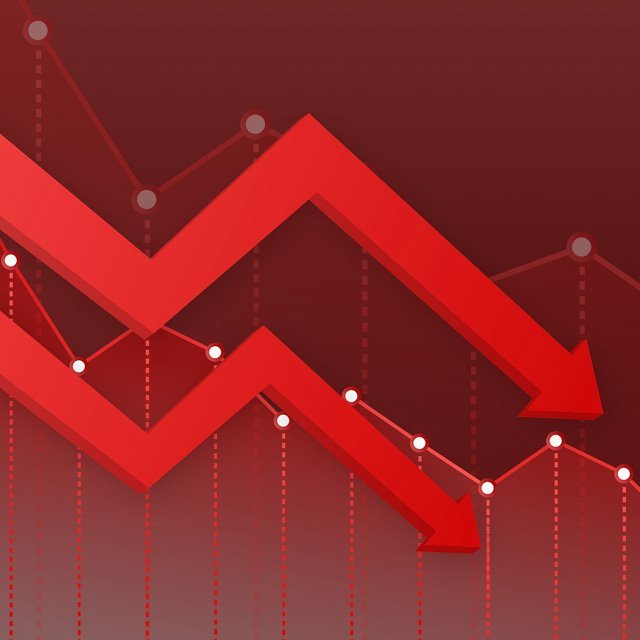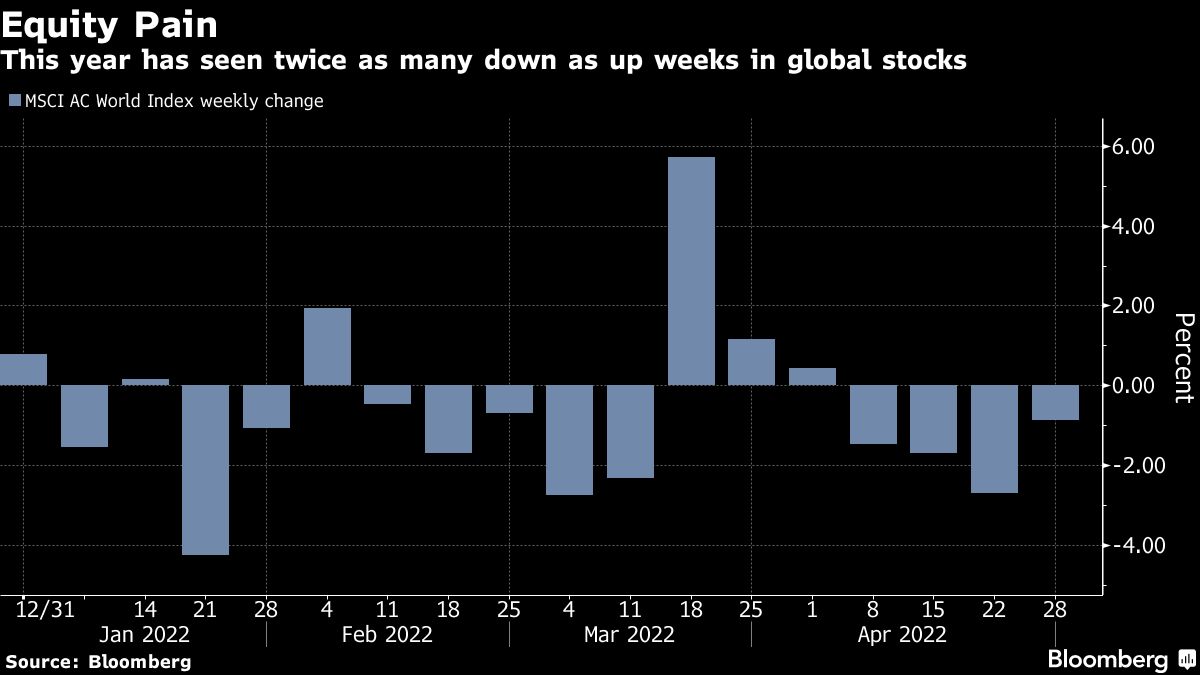Stocks Tank as Amazon Endures Worst Day Since 2007

Technology stocks extended losses Friday as shares of what were once market darlings at the height of the pandemic headed for their worst monthly drop since the great financial crisis.
Amazon.com Inc. led the decline with a 15% drop, the worst since 2007, as the ecommerce giant’s buildout during the pandemic proved to be too much amid waning consumer demand.
The Nasdaq 100 retreated 3.7%, bringing its losses to 12% for the month, the most since November 2008. Meanwhile, the S&P 500 was 3.01% lower, with every major sector in the red.
A busy earnings season has largely helped temper losses during a turbulent year, even with the notable disappointments.
Yet fears of tightening monetary policy at the Federal Reserve, combined with Covid-19 lockdowns in China and Russia’s war in Ukraine, has dented sentiment, especially for frothy growth shares that have future profits at risk. Shares of Apple Inc. also declined 2.6% after warning of supply constraints.
“Key tech giants have been keeping the stock averages from falling even further than they already have, so it looks like April is going to end on a sour note,” wrote Matt Maley, chief market strategist at Miller Tabak + Co., noting benchmark gains Thursday on positive results from Meta Platforms Inc.
“But experience tells us that these kinds of wild intraday moves (and wild day-to-day moves) that we have experienced on many days in recent weeks are signs of an unhealthy market,” he said.
Tech companies are set to show a profit contraction of 1.2% for the first quarter, compared with growth of 12% for the rest of the market, according to Credit Suisse’s Jonathan Golub. Large tech firms have also beat earnings by 2.3% versus 8.6% for the rest, his data shows.

The losses come as investors are assessing risks from a number of macro headwinds amid economic data, which paints a positive picture of business demand.




